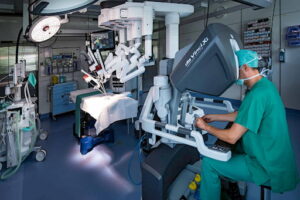Check-up by age group
Each stage of life has its own physiological characteristics. As a person gets older, regular check-ups become more important in order to prevent serious diseases.
The World Health Organization recommends undergoing an annual check-up regardless of gender or age. Even if a patient has no complaints, preventive screening is crucial.
Features of the procedure in global clinics
Pediatric check-up (ages 1-17)
A child’s health is a top priority for every family. The child’s body is undergoing rapid growth and organ development, which is why pediatric check-ups include additional examinations such as:
- Consultations with an orthopedic specialist, surgeon, and neurologist
- Blood tests for phosphorus, calcium, and vitamin D
Check-up (ages 18-39)
Reproductive health is a priority in this age group as it determines fertility, pregnancy and childbirth. Both men and women need regular health checks. After the age of 25, the secretion of somatotropin (growth hormone) decreases and the body begins a gradual aging process.
Key components of a check-up in reproductive age:
- Urological and gynecological examinations (sexually transmitted infections, smears, hormonal panel)
- Pelvic ultrasound
Check-up (ages 40-65)
Check-ups in this age set primarily focus on the early detection and prevention of malignancies. Diagnostic procedures include:
- Tumor markers (PSA, CA-125)
- Holter monitoring (24-hour ECG) and stress testing (bicycle ergometry)
- Mammography
- Testing for osteoporosis
- Doppler ultrasound of the heart vessels
Senior check-up (ages 65+)
A highly qualified geriatric physician makes the examination plan based on the patient’s individual needs. Specialized tests for older adults include:
- Mobility and fall risk assessment
- Gait speed test
- Balance evaluation
- Cognitive function screening
- Medication safety assessment
Top clinics
-
 Max Grundig Clinic
Max Grundig Clinic -
 University Hospital Freiburg
University Hospital Freiburg -
 Acibadem Altunizade Clinic
Acibadem Altunizade Clinic -
 Ajibadem Atasehir Clinic
Ajibadem Atasehir Clinic -
 Dubai, UAE NMC Healthcare
Dubai, UAE NMC Healthcare -
 Shishli Memorial Clinic.
Shishli Memorial Clinic. -
 American Hospital Dubai
American Hospital Dubai -
 Burjeel Hospital Abu Dhabi
Burjeel Hospital Abu Dhabi -
 Debling Private Clinic
Debling Private Clinic -
 Confraternity Private Clinic.
Confraternity Private Clinic. -
 Rudolfinerhaus Private Clinic.
Rudolfinerhaus Private Clinic. -
 Vienna, Austria Wiener Privatklinik (WPK)
Vienna, Austria Wiener Privatklinik (WPK) -
 Asklepios Nord Heidberg
Asklepios Nord Heidberg -
 Bahçelievler Memorial Clinic
Bahçelievler Memorial Clinic -
 Clinique Montchoisy
Clinique Montchoisy -
 Clinique La Prairie
Clinique La Prairie -
 Clinique Genolier
Clinique Genolier -
 Ataşehir Memorial Clinic
Ataşehir Memorial Clinic -
 Memorial Antalya Hastanesi
Memorial Antalya Hastanesi -
 Acibadem Bodrum Hospital
Acibadem Bodrum Hospital -
 Düsseldorf, German Diagnostic Center "Radprax"
Düsseldorf, German Diagnostic Center "Radprax" -
 Zurich, Switzerland Bethanien Clinic
Zurich, Switzerland Bethanien Clinic -
 Barcelona, Spain QuironSalud Barcelona Hospital
Barcelona, Spain QuironSalud Barcelona Hospital -
 Barcelona, Spain Dexeus University Hospital
Barcelona, Spain Dexeus University Hospital -
 Barcelona, Spain Medical Center "Teknon"
Barcelona, Spain Medical Center "Teknon" -
 Barcelona, Spain Sant Joan de Deu Children's Hospital
Barcelona, Spain Sant Joan de Deu Children's Hospital -
 Barcelona, Spain University Hospital Barnaclinic+
Barcelona, Spain University Hospital Barnaclinic+ -
 Madrid, Spain University Clinic HM Madrid
Madrid, Spain University Clinic HM Madrid -
 Madrid, Spain University Hospital HM Monteprincipe
Madrid, Spain University Hospital HM Monteprincipe -
 Zurich, Switzerland Hirslanden Clinic
Zurich, Switzerland Hirslanden Clinic -
 Madrid, Spain Quiron Salud University Hospital
Madrid, Spain Quiron Salud University Hospital -
 Lugano, Switzerland Saint Anna Clinic
Lugano, Switzerland Saint Anna Clinic -
 Geneva, Switzerland Clinique des Grangettes
Geneva, Switzerland Clinique des Grangettes -
 г. Женева, Швейцария Клиника «Женераль-Болье»
г. Женева, Швейцария Клиника «Женераль-Болье» -
 г. Женева, Швейцария Hirslanden Clinique La Colline
г. Женева, Швейцария Hirslanden Clinique La Colline -
 г. Стамбул, Турция Клиника Флоренс Найтингейл
г. Стамбул, Турция Клиника Флоренс Найтингейл -
 г. Иерусалим, Израиль Медицинский центр “Хадасса”
г. Иерусалим, Израиль Медицинский центр “Хадасса” -
 г. Петах-Тиква, Израиль Медицинский центр имени Ицхака Рабина
г. Петах-Тиква, Израиль Медицинский центр имени Ицхака Рабина -
 г. Тель Авив, Израиль Медицинский центр “Ассута”
г. Тель Авив, Израиль Медицинский центр “Ассута” -
 г. Рамат-Ган, Израиль Клиника Шиба
г. Рамат-Ган, Израиль Клиника Шиба






































